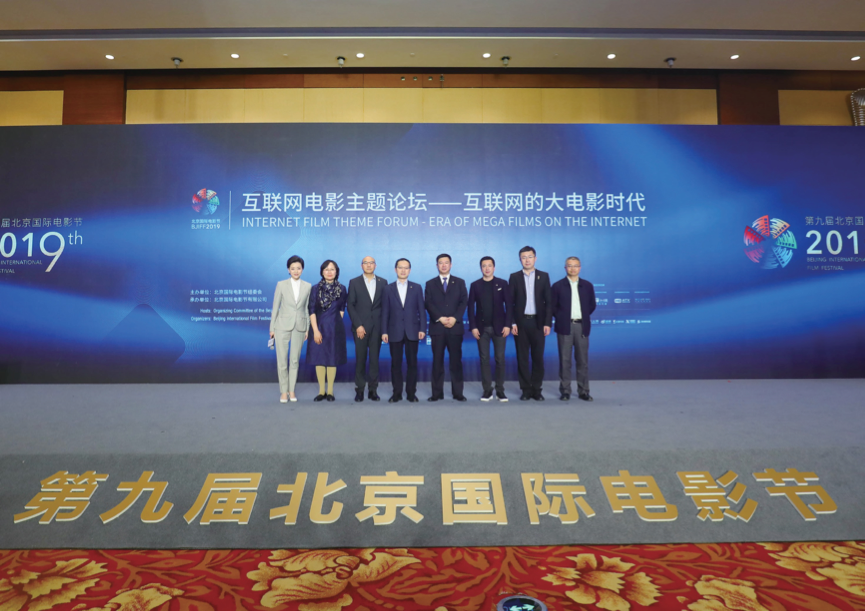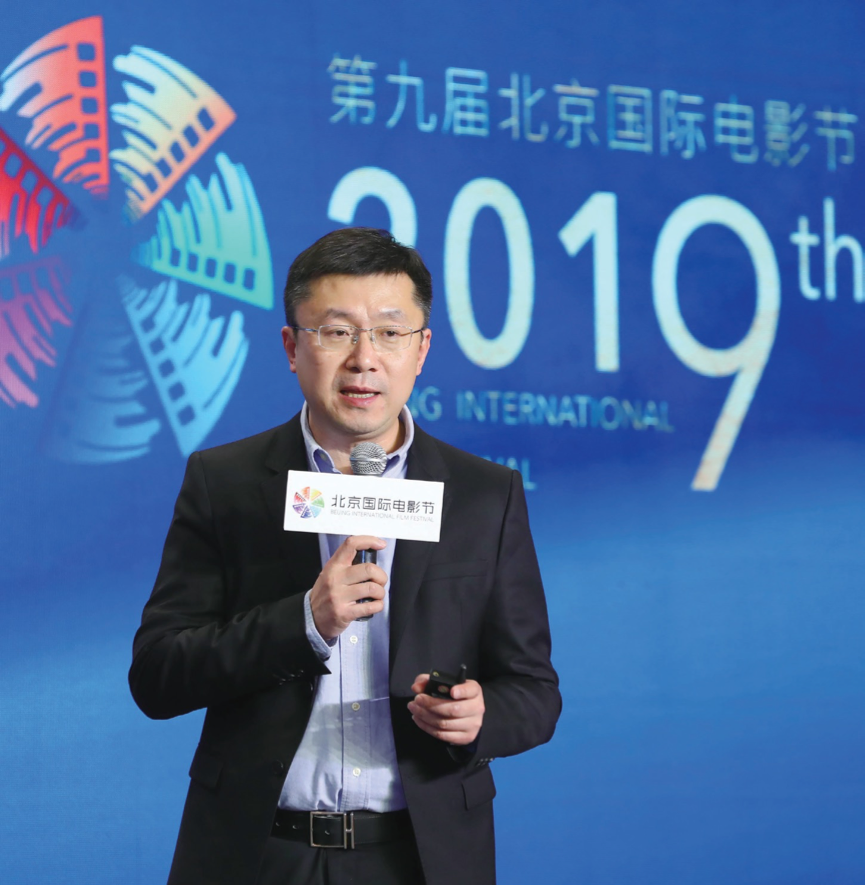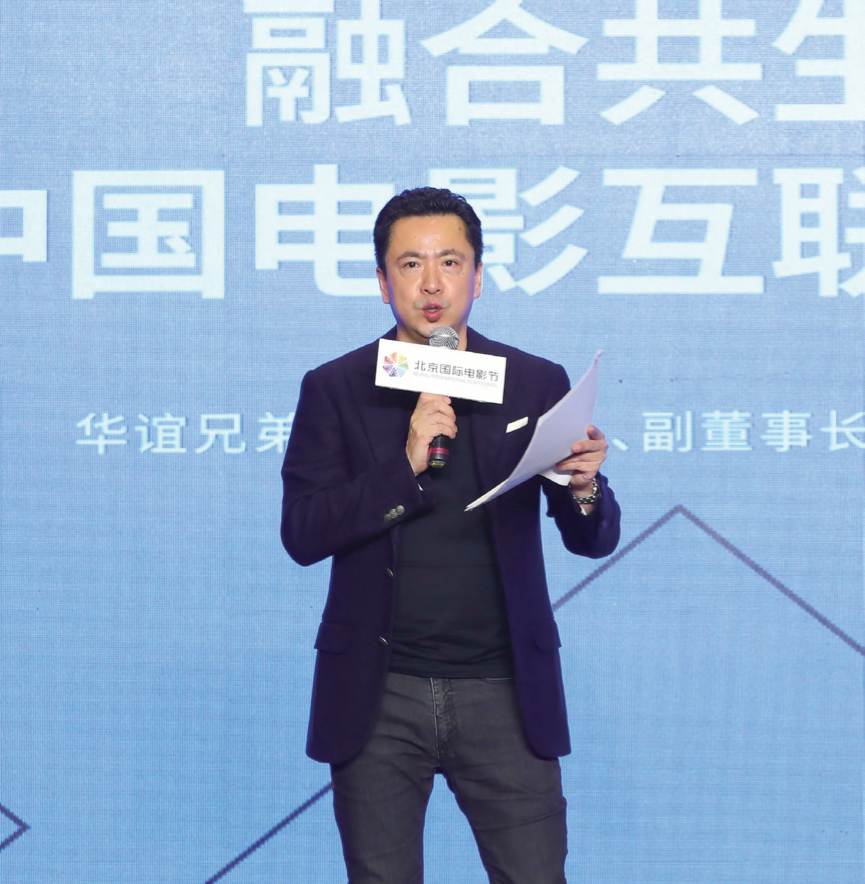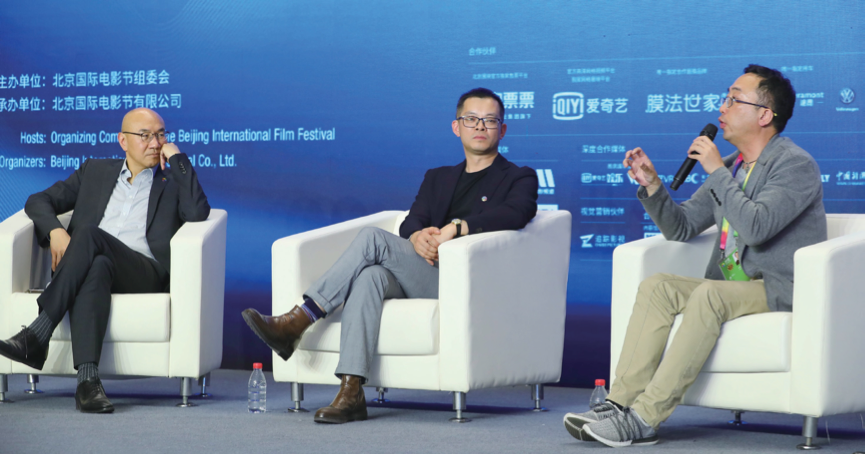On April 17th, the 9th Beijing International Film Festival "Internet Film Theme Forum" was grandly held in Beijing Palace, Beijing Hotel, during which the senior practitioners in the Internet and the traditional film industries were invited to deliver keynote speeches and dialogues, discussing the impact of the Internet on the traditional films development, as well as the problems faced during integration.




The Internet film data
The well-known host, Ms. Yang Lan, served as the forum moderator. During the part of keynote speech, from the big data perspective, Founder and CEO of iQiyi, Dr. Gong Yu analyzed the two main tasks done by the Internet film industry within the 15 years development: placing film in the Internet and standardizing the production of short films or micro-films, thus initially establishing the business model of Internet film.
According to the date showed by Dr. Gong Yu, which demonstrated the powerful market scale of the Internet, in 2018, the gross box office of Chinese films reached 60,976,000,000 yuan while the revenue of online video was 201,680,000,000 yuan. The pay-per-view content of online video, which is comparable with the film box office, reached 53.65 billion yuan. Dr. Gong Yu believed that, the revenue of pay-per-view content would exceed that of the film box office. In addition, he also pointed out that " a market scale of more than 60 billion yuan is indeed just a small industry in the national economy from the overall perspective, however, its enormous impact has far exceeded the data it presented.”
At last, in view of the Internet impact on the traditional film development model, he further suggested that, cinema film should also put emphasis on the Internet revenue model in addition to the sales of copyright, and the film development model should be transformed from the current box office revenue maximization to the box office + Internet revenue maximization.
The Internet road of traditional films
The Internet film and television industry history has just gone through 7 years from the initial "Internet + film" concept in 2012 to their integration now, according to Mr. Wang Zhonglei, Co-founder, Vice Chairman, as well as CEO of Huayi Brothers Media Corporation. He further claimed that, the Internet has truly brought conveniences to the film industry development, changed the traditional films production, distribution and profitability mode, consumption habits of the audience as well as the business model of cinemas. However, he didn’t think that the big data could change film creation, or replace its original creation, believing that the essence of film content production will not be changed, the future trend would be the integration of Internet & traditional films.
He also noted that, Internet film and television companies can quickly connect content and users with Internet thinking, rather than just participate in the film production. At the same time, the Internet company capital has also been invested in the traditional film company with certain influence on their operation. Therefore, the Internet and the traditional film industry have gradually been integrated at both the capital and production aspects.
Speaking of distribution and screening, the Internet also provides huge convenience and advantages for the traditional films. Firstly, the online ticket service has improved audience's viewing experience, facilitating them to easily buy tickets online via mobile phones, instead of lining up for tickets or hastily deciding which one to watch in theaters. Secondly, with big data, the Internet companies can easily find the target audience, thus letting more people know about the film to achieve wide audience coverage. Last but not least, its timeliness and interactivity could accelerate the spread speed of the word-of-mouth of a film, instantly affecting the audience's viewing behavior. All these are the advantages the Internet has generated.
Basically, the change of viewing method, as the common problem faced by the global traditional film industry, is one of the most obvious impacts caused by the Internet. Nevertheless, Mr. Wang Zhonglei stated that "Due to the Internet platform, cinema is no longer the only film-viewing channel. Nowadays, it is easy and convenient for the audience to determine what kind of movie is good to be watched in cinema. For films that need to be enjoyed in an immersive and tearful way, cinema would be a better choice. For those that need to be quietly watched, the Internet might be a better channel for the audience to appreciate its plot and acting. As the next development stage of traditional and Internet films, this would provide audience with a wide range of options, thus enriching the film industry".
The referential case and experience
The change of viewing method and its related influence on traditional cinemas features prominently in the United States. Due to the prosperous development and solid access barriers of American film industry, the competition between the Internet and traditional film industry is especially fierce. With the theme of the American film entertainment industry in changing, Mr. William Feng, Head of Greater China and Vice President, MPA Asia Pacific, analyzed the competition and cooperation relationship between the traditional American film industry and the Internet. Despite of the uniqueness of this situation, it is essentially the same as that of the other countries, that is, exploring a new mode for co-existence with the Internet.
Taking Netflix, which left the American Internet Association and joined the American Film Association, as an example, he pointed out that Netflix joined American traditional film industry and established a partnership by changing it from an Internet company into a content company. Actually it does not mean that Netflix has become a traditional film company, but an integration with the traditional film with the Internet thinking and mode. To achieve such integration, it is necessary to find the consistent profit model. He also took the window period of American films as an example, illustrating the window period changes of each stage, from on screen, disc release to online release, which is so-called the change of development mode.
The prospective integrated development
During the theme communication of the forum it reached a consensus that the integration of the Internet and the traditional film is an inevitable trend, besides, since the content is the part and parcel of films, it is urgent to realize technology & model innovation for win-win, according to Mr. William Feng, Head of Greater China and Vice President, MPA Asia Pacific, Mr. Li Jie, Senior Vice President of Alibaba Pictures, President of Tao Piaopiao and Director of Youku Film, Mr. Ya Ning, iQiyi Senior Vice President and iQiyi Film President, Mr. Ye Ning, Vice President and Director of Huayi Brothers Media Corporation and General Manager of Huayi Brothers Film Co., Ltd.
Mr. Li Jie emphasized that the Internet would only create opportunities rather than challenges, and in effect, it would affect the distribution pattern and rules of interest rather than the industry itself. The Internet would be engaged in three aspects, which are eliminating information asymmetry, reducing costs and improving convenience. He also stated that the Internet is just a tool, which could only change the industry model.
Mr. Ye Ning regarded the relationship between films and the Internet as fish and water. "The Internet adds wings for content, enabling it to fly into millions of households." The future development should realize the content & technology innovations. "These two innovations are the main direction and engine of the whole industry, which is where the opportunity lies", according to him.
The detailed and in-depth discussion on the ecology and development of the Internet film era is made in the forum. The future is coming, it is inevitable for the film insiders to face the integration of Internet and traditional film, no matter opportunities or challenges.
